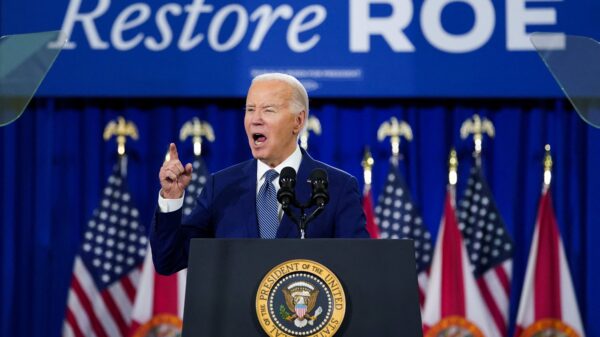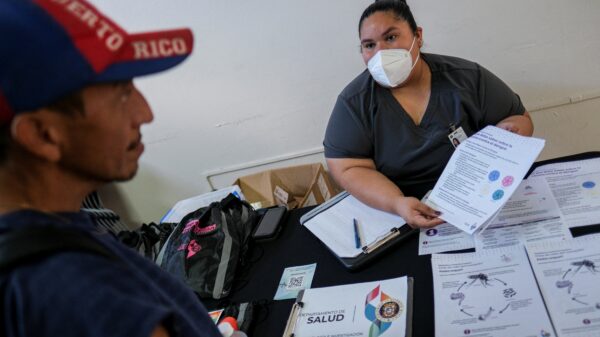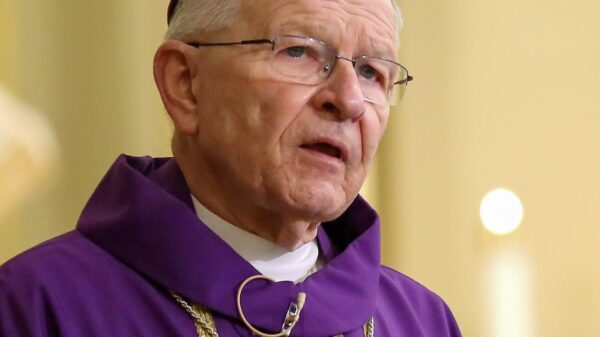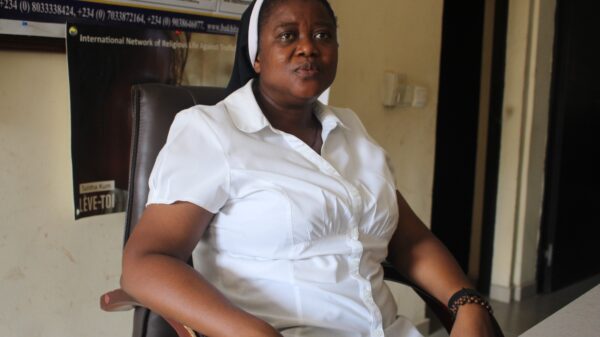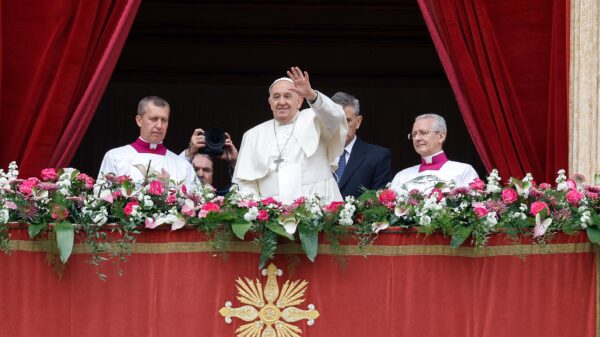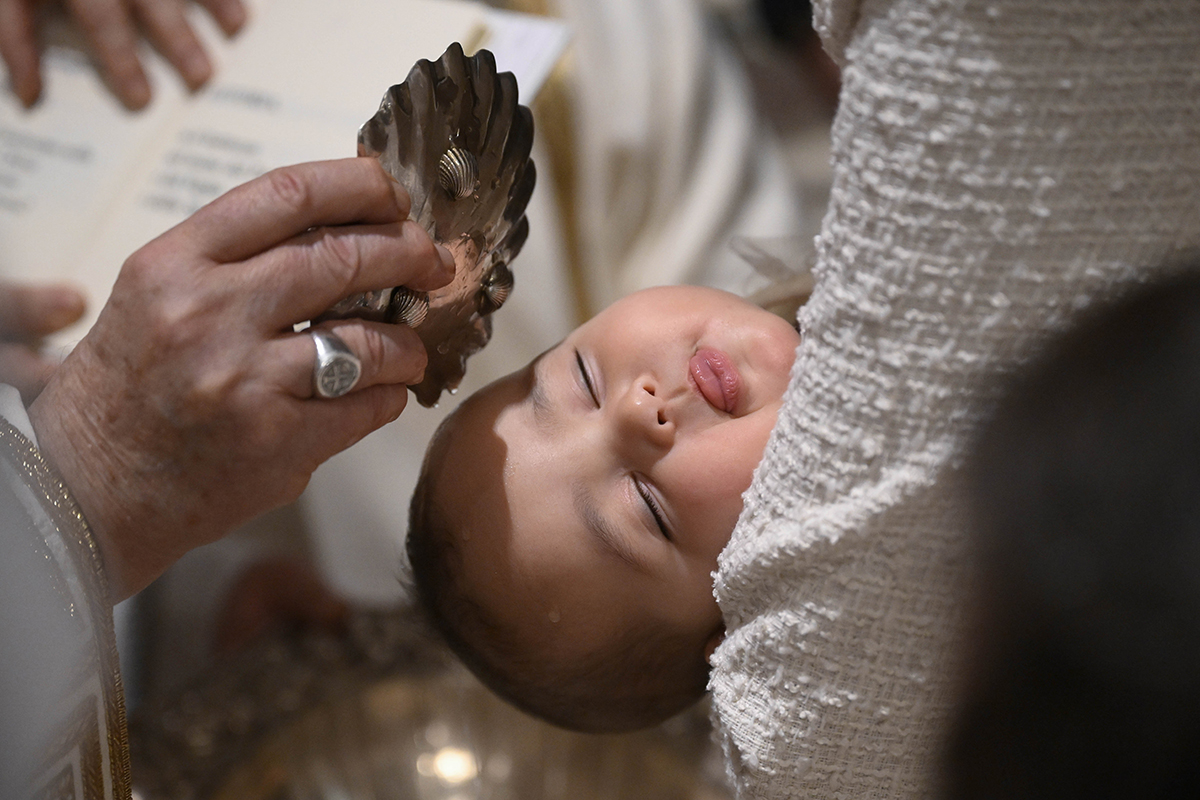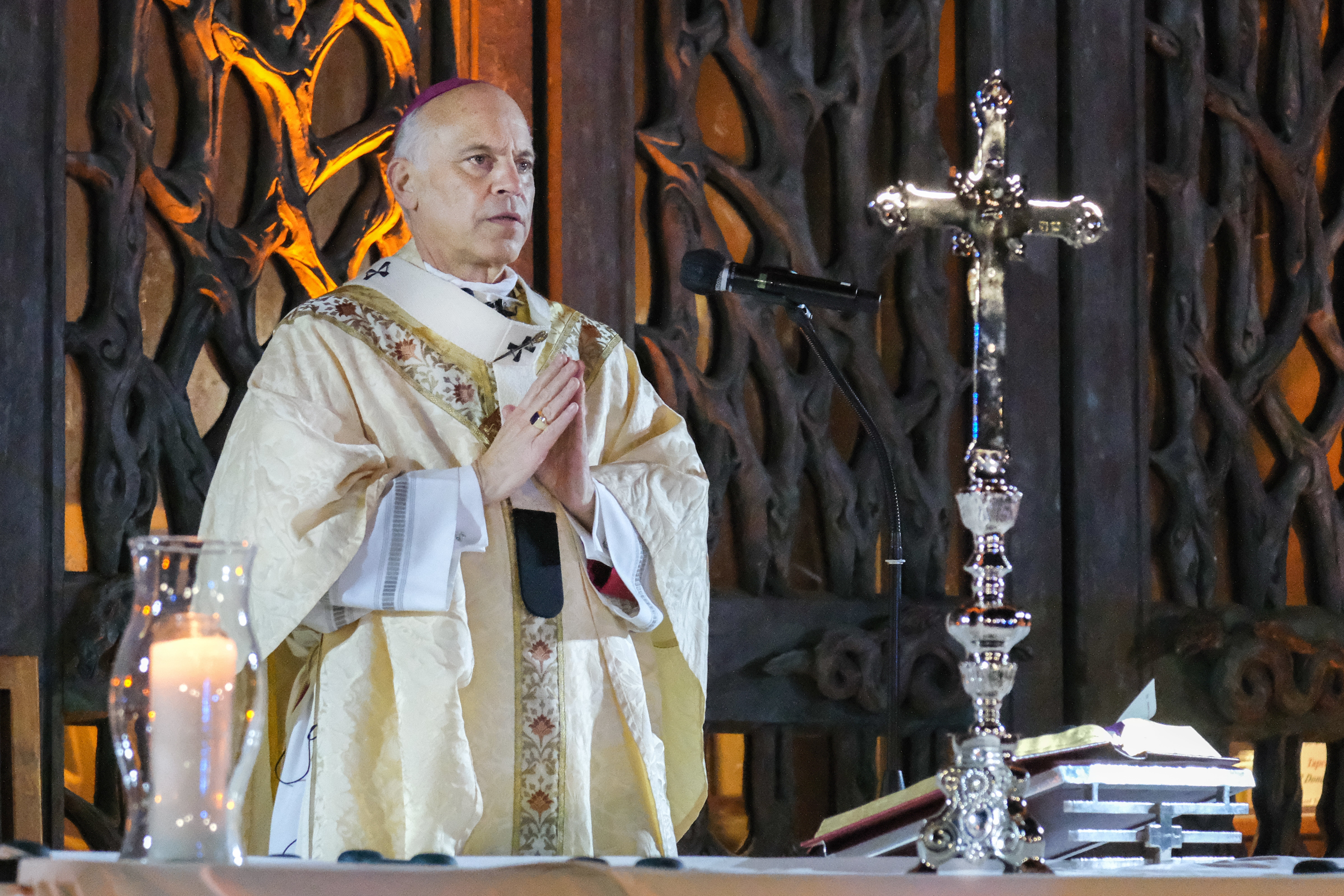VATICAN CITY (CNS) — The Dicastery for the Doctrine of the Faith said it continues to receive reports of Catholics, including priests, finding out all the sacraments they have received are invalid because they were baptized years earlier with a formula that was not approved.
When a priest or other minister changes the words, gestures or material prescribed for the celebration of the sacraments, he can “rob” the faithful of what they deserve and make the sacrament invalid, the dicastery said in a note published Feb. 3.
The note, “Gestis Verbisque” (“Gestures and Words”), passed unanimously by members of the dicastery during their plenary assembly Jan. 25 and was approved by Pope Francis Jan. 31, said the document, which was signed by Cardinal Victor Manuel Fernández, dicastery prefect, and Msgr. Armando Matteo, secretary of the dicastery’s doctrinal section.
Presenting the document, Cardinal Fernández wrote that in 2022 the cardinals and bishops who are members of the dicastery already had “expressed their concern for the multiplication of situations in which they were forced to acknowledge the invalidity of sacraments celebrated.”
As an example, the cardinal cited baptism ceremonies where, instead of saying, “I baptize you in the name of the Father, and of the Son, and of the Holy Spirit,” the minister will say, “I baptize you in the name of the Creator…” or “In the name of dad and mom, we baptize you.”
In 2020, the then-doctrinal congregation issued a note saying baptisms celebrated with the formula, “We baptize you …” also were invalid, setting off a large-scale effort in several dioceses, including in the United States, to trace people who were invalidly baptized.
The sacraments they subsequently received, including first Communion, confirmation and even ordination also were invalid since only a baptized Catholic can validly receive the other sacraments.
Cardinal Fernández said the situation is particularly painful for priests who not only find out their ordinations were invalid, but so were all the sacraments they subsequently celebrated for others.
A priest in the Archdiocese of Detroit, who had been baptized with the wrong formula 30 years earlier, started over when the 2020 document was issued. He was baptized, confirmed, received the Eucharist, was ordained to the diaconate and to the priesthood in the space of 10 days. The archdiocese set up a webpage for people who thought they had received the sacraments from him prior to 2020.
“Modifying the form of a sacrament or its matter is always a gravely illicit act and deserves exemplary punishment, precisely because such arbitrary acts are capable of producing serious harm to the faithful People of God,” the cardinal wrote.
While the document did not specify a punishment, it explained the importance of using the prescribed words, exact matter — such as water, wine or oil — and gestures like anointing, laying on of hands and the sign of the cross.
“While in other areas of the Church’s pastoral action there is ample room for creativity,” the cardinal wrote in the foreword, “such inventiveness in the area of the celebration of the sacraments becomes a ‘manipulative will’ and cannot be invoked.”
“Because of their rootedness in Scripture and Tradition, the matter and form never depend nor can they depend on the desire of the individual or of the particular community,” the document said.
“Instituted by Christ, the sacraments are actions that realize, by means of sensible signs, the living experience of the mystery of salvation, making possible the participation of human beings in the divine life,” the document said. “They are the ‘masterpieces of God’ in the New and Eternal Covenant, forces that come forth from the body of Christ, actions of the Spirit working in his body which is the Church.”
“This is why the Church in the Liturgy celebrates with faithful love and veneration the sacraments that Christ himself has entrusted to her so that she may preserve them as a precious inheritance and source of her life and her mission,” the document said.
A priest celebrates the sacraments not only “in persona Christi” — in the person of Christ — but also in “nomine Ecclesiae” — in the name of the church, it said, which is why he must follow exactly the church’s approved liturgical texts, which indicate when and where local adaptations or variations are permitted.
The doctrinal note said that it applies to the entire church, although it asked the Eastern Catholic churches to draft their own versions of the document, using their particular theological language “where it differs from that used in the text,” and to submit it for approval to the dicastery before publication.


